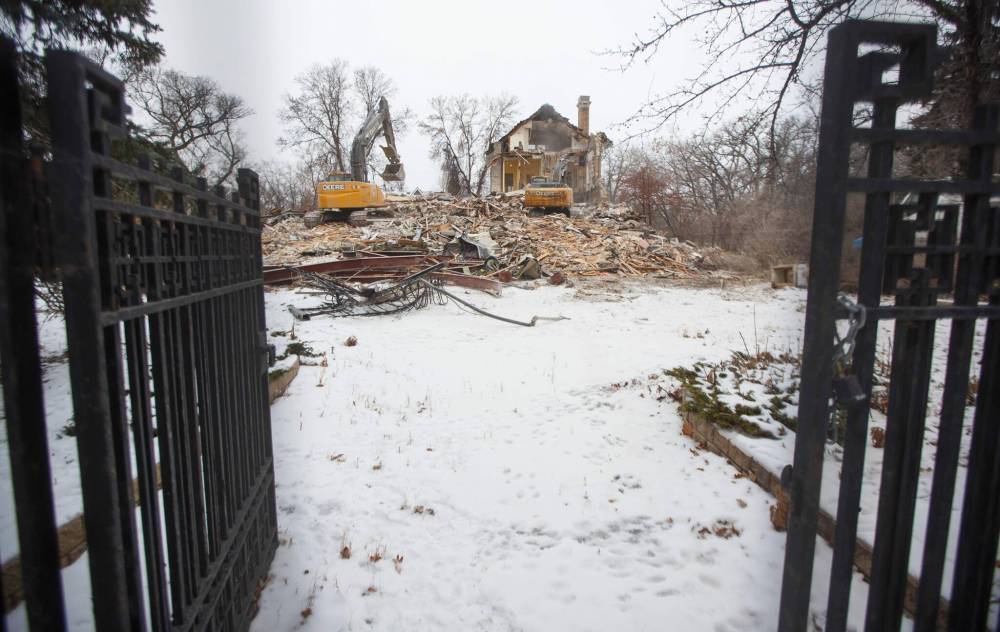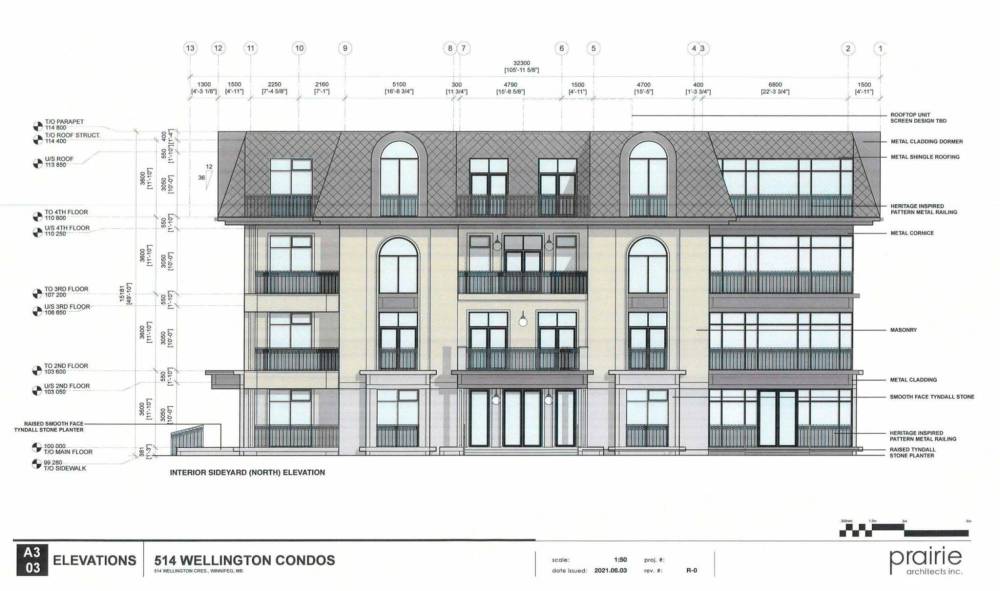Condos draw ire on crescent
Plans for site of demolished mansion assured more neighbourhood opposition
Advertisement
Read this article for free:
or
Already have an account? Log in here »
To continue reading, please subscribe:
Monthly Digital Subscription
$19 $0 for the first 4 weeks*
- Enjoy unlimited reading on winnipegfreepress.com
- Read the E-Edition, our digital replica newspaper
- Access News Break, our award-winning app
- Play interactive puzzles
*No charge for four weeks then billed as $19 plus GST every four weeks. Offer only available to new and qualified returning subscribers. Cancel any time.
Read unlimited articles for free today:
or
Already have an account? Log in here »
Hey there, time traveller!
This article was published 10/01/2022 (1079 days ago), so information in it may no longer be current.
Although the grand heritage mansion on Wellington Crescent was demolished more than a year ago, community opposition to its site redevelopment has not lost momentum.
A rezoning application to allow a four-storey, eight-unit condo at 514 Wellington Cres. — site of the former Gordon House, immediately north of St. Mary’s Academy — is set to be heard today by the city centre community committee.
City of Winnipeg planning, property and development staff are recommending the committee approve the rezoning to residential multifamily-small district from its previous designation of single family.

The proposed development would include eight condo units, about 3,100 square feet each in size (totalling 24,065 sq. ft.), with 17 underground parking stalls and three drive-in entrances. The former heritage structure — completed in 1909 for prominent businessman James Thomas Gordon (1858-1919) — was about 8,000 sq. ft.
Christine Skene, one of the neighbourhood residents who have fought both the demolition and redevelopment of the site, said a number will be present in person or virtually to voice their opposition.
A 21-page submission against the rezoning application has been prepared by a residents committee, who have been knocking heads with the current property owner — a company headed by Winnipeg businessman Jeff Thompson — every step of the way.
The submission, signed by neighbourhood resident and lawyer Richard Leipsic, says: “Allowing a residential home to fall into disrepair such that a demolition permit can be awarded on grounds of public safety is a devious and mischievous tactic. The city should have held the owner to the same requirements as a normal request for a demolition permit, namely replacing it with a similar single-family residential home.”
Skene said despite the fact the developer has ostensibly followed all city guidelines, including public consultations, she believes the plan violates several zoning restrictions.
“The public consultation in the fall was a joke,” she said. “It was just a sell job.”
The developer’s proposal contravenes the spirit of the Heritage Conservations District application pending for the neighbourhood and violates height restrictions, Skene said. After promises were made to leave all trees on the property intact, the plan now calls for some to be removed, she claimed.
Residents had organized to maintain the character of the tony neighbourhood long before Thompson bought the property from former senator Douglas Everett (who died in 2018).
They successfully fought the demolition for more than a year, and claim the house was structurally in mint condition when it came down.
“We watched the demolition. They had to claw it apart,” Skene said. “It didn’t even shake when they hit it with the big bucket… It was absolutely heartbreaking.”
Thompson was not available for comment Monday; an associate said it appears the rezoning application process has gone smoothly.

In a statement, James Veitch, Winnipeg acting manager of urban planning and design, said: “The city was thorough in its review of the property prior to making its current recommendation… After the property owner acquired a demolition permit, we paused those actions to allow for a review of the property because of its location within a nominated heritage conservation district. After reviewing the property and consulting with the owner, the city is moving forward with a recommendation that supports rezoning of the property.”
Skene says it is not a not-in-my-backyard argument: the residents group welcomes neighbourhood development, as long as it is within the already agreed-upon parameters.
In his submission, Leipsic wrote: “If endorsed by approving the rezoning application, this precedent will send the wrong message, will be replicated, and serve as a road map to other developers.”
The process of seeking and obtaining agreements from the city for development needs to be overhauled, Skene added.
The rezoning application includes costly and extensive work the developer has clearly already undertaken to design and plan the development, she said.
Skene said rezoning should come at the beginning of the process, before the developer incurs the expense of professional services.
“The city needs to listen to the neighbours,” she said. “I don’t think the city has an obligation to bail out a developer that has made a bad decision. (Thompson) knew from Day 1 that his decision was not going to fly.”
martin.cash@freepress.mb.ca

Martin Cash
Reporter
Martin Cash has been writing a column and business news at the Free Press since 1989. Over those years he’s written through a number of business cycles and the rise and fall (and rise) in fortunes of many local businesses.
Our newsroom depends on a growing audience of readers to power our journalism. If you are not a paid reader, please consider becoming a subscriber.
Our newsroom depends on its audience of readers to power our journalism. Thank you for your support.


